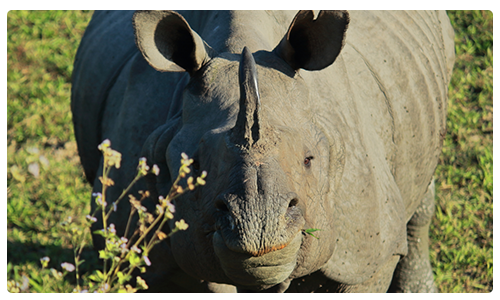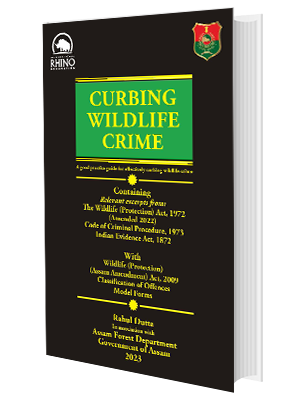Wildlife Crime Manual to Help Rhinos in India


While many rangers and security personnel in rhino range states receive anti-poaching training and funding for on-the-ground equipment and operations, the training they receive is mostly geared towards catching poachers and making arrests. However, a ranger’s job is not done once an arrest is made. Evidence collection and case preparation are crucial parts of a ranger’s job to ensure that criminals are accountable for their crimes. Unfortunately, mistakes made during arrests and evidence collection can cause rhino and other wildlife crimes to be dismissed in court, causing the suspect to be released and able to return to poaching.
The International Rhino Foundation’s Intelligence Specialist, Rahul Dutta, is working to bridge this training gap and help increase the number of successful prosecutions and convictions in India through the publication of a comprehensive Wildlife Crime Investigation Manual. The first edition of the manual was published in 2015 but India’s wildlife laws have changed since then and it was time for an updated version. This manual is intended to be used as a tool that provides step-by-step guidance on how to conduct and file a case in court. The manual details interpretations of Indian laws and codes that pertain to wildlife crime, as well as past court verdicts that have led to precedents and laws. The manual also provides a detailed and streamlined checklist for rangers and officers to follow so they are able to act in a timely manner while ensuring any collected evidence and procedures are admissible in court.
The manual will be distributed to officers in the Forest Department and police officers who may not be as familiar with wildlife laws but are often involved in wildlife crime cases.

“I hope the manual will help bridge the gulf that sometimes exists between field staff and senior officers with different backgrounds, working in different areas. Wildlife crime investigations can be far-reaching and complicated and often involve large numbers of officers with differing levels of experience and knowledge of wildlife crime laws. For investigations to succeed, it’s critical that everyone is on the same page and using the same investigation techniques and protocols.” said Rahul Dutta.
This massive 460-page undertaking was made possible thanks to the funds provided by the Oak Foundation and the Columbus Zoo and Aquarium, in addition to rhino supporters like you.
